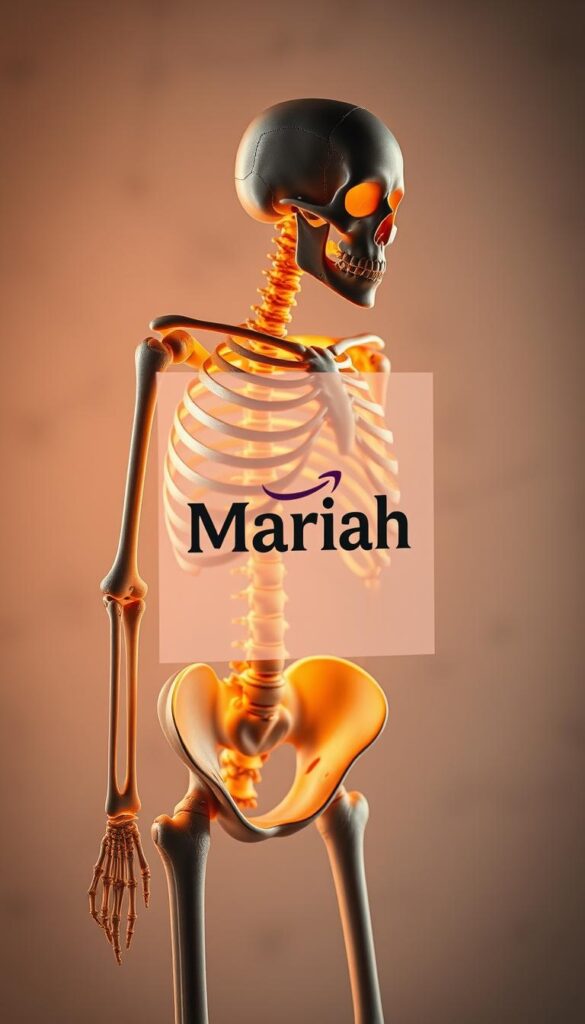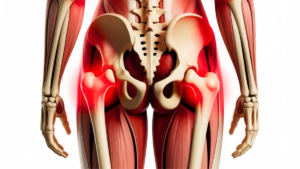Exploring health and wellness, I see how calcium is key. It’s important for many body functions, especially for bones.
Keeping bones strong is vital, especially for women. They face a higher risk of osteoporosis and fractures. Calcium supplements can fill the nutritional gap. They help those with dietary limits or needs.
Learning about calcium and its benefits helps us support our health. It’s a step towards better well-being.
Key Takeaways
- Calcium is crucial for maintaining strong bones and overall health.
- Calcium supplements can help address dietary deficiencies.
- Adequate calcium intake is particularly important for women.
- Supplementation can support overall well-being.
- Understanding calcium benefits can inform health decisions.
Understanding Calcium: The Essential Mineral
Calcium is very important for our bodies. It helps with many things, like keeping our bones strong. It also helps our muscles, nerves, and blood to work right.
What Is Calcium and Its Role in the Body
Calcium is a mineral that helps our bones and teeth stay strong. It also helps our muscles, nerves, and blood to function properly. This makes calcium very important for our health.
Natural Sources of Calcium
There are many ways to get calcium from food. We can get it from dairy products and plant-based foods. Eating a variety of these foods helps keep our calcium levels right.
Dairy-Based Sources
Dairy products like milk, cheese, and yogurt are full of calcium. Drinking a glass of milk or eating a yogurt can give us a lot of calcium. This is good for our bones.

If you don’t eat dairy, there are still plenty of ways to get calcium. Leafy greens like kale and broccoli are great sources. Also, fortified plant-based milk and tofu are good options. These foods can help us get enough calcium if we eat them as part of a healthy diet.
In short, knowing where to find calcium is key to keeping our bodies healthy. By eating both dairy and plant-based foods, we can help our bones stay strong and support our overall health.
Why Calcium Is Crucial for Overall Health
Calcium is a key mineral for our body’s health. It’s not just for bones; it’s vital for many other important functions too.
Building and Maintaining Bone Structure
Calcium is key for strong bones and teeth. It helps keep bones dense, lowering the risk of osteoporosis and fractures. Kids and teens need enough calcium to build a strong skeleton.

Supporting Muscle Function and Nerve Transmission
Calcium is also important for muscles and nerves. It helps muscles work right and nerves talk to each other. This is how our body moves and thinks.
Role in Blood Clotting and Heart Health
Calcium is also crucial for blood clotting and heart health. It helps stop too much bleeding and keeps the heart beating right. Without enough calcium, heart problems can increase.
In short, calcium is very important. It helps with bones, muscles, nerves, blood, and heart. This shows why we need it for good health.
The Benefits of Supplements of Calcium Throughout Life
Calcium supplements are important at every stage of life. They help keep our bones strong and our health good. As we get older, our bones change, and calcium helps support them.
Childhood and Adolescence: Building Strong Foundations
Calcium is key for growing strong bones and teeth in kids and teens. Calcium supplements help young people build strong bones. This can lower the chance of osteoporosis and breaks later on.
Adulthood: Maintaining Optimal Calcium Levels
Adults need to keep their calcium levels up for bone health. Calcium supplements fill the gap between what we eat and what our bodies need. They help keep bones strong and lower the risk of bone problems.
Senior Years: Preventing Age-Related Bone Loss

Older people face a higher risk of bone loss and osteoporosis. Calcium supplements, with vitamin D, can help fight this. They support bone health and density, reducing the chance of fractures and mobility issues.
Recommended Dosages by Age Group
The right amount of calcium changes with age. Kids and teens need it for growth. Adults need it to keep bones strong. Seniors get more to fight bone loss. Always talk to a doctor about the right amount for you.
High-Quality Calcium Supplements
Choosing a good calcium supplement is important. Look for ones that are easy for your body to absorb, like calcium citrate or carbonate. Make sure to check the label for extra ingredients and safety certifications to get a safe and effective product.
Calcium and Menopause: A Critical Relationship

Menopause brings big changes to a woman’s life, affecting her bones. Hormonal shifts cause a drop in estrogen. This makes it harder for the body to absorb calcium, a key mineral for strong bones.
How Hormonal Changes Affect Calcium Absorption
Estrogen levels drop during menopause, making it tough to absorb calcium. Estrogen is key in keeping bones healthy. So, women need to rethink their calcium intake to make up for this loss.
Increased Risk of Osteoporosis During Menopause
Menopause raises the risk of osteoporosis because bones lose mass faster. Lower estrogen levels are to blame. Taking calcium supplements is crucial to fight off osteoporosis.
Recommended Calcium Intake for Menopausal Women

Women going through menopause should eat more calcium to keep bones strong. Aim for about 1,200 mg a day. This can come from food and supplements.
Combining Calcium with Vitamin D for Better Absorption
Vitamin D helps the body use calcium better. So, taking calcium with vitamin D is a smart move. It makes the supplements work better.
Timing and Frequency of Supplementation
When and how often you take calcium matters. It’s best to spread out your doses. This helps your body absorb it better and avoids side effects.
Knowing how calcium and menopause are linked helps women protect their bones. It’s a key step in staying healthy during this important time.
Signs and Consequences of Calcium Deficiency
Not getting enough calcium can harm our health a lot. It affects our bones and can also impact other areas of our well-being.
Impact on Bone Health and Density
Calcium is key for strong bones. Without enough, our bones get weak and break easily. Osteoporosis is a big worry for older people because it makes bones more likely to break.
Osteoporosis and Fracture Risk
Osteoporosis makes bones brittle and increases the chance of fractures. Calcium is important for keeping bones strong. Without it, bones can become weak.
Bone Fragility During Menopause

Menopause can make bones lose strength faster. This is worse if you don’t get enough calcium. Women going through menopause are more likely to get osteoporosis and break bones.
Effects on Hair and Nail Strength
Calcium also affects hair and nails. Brittle nails and hair loss can show you’re not getting enough calcium. It shows how important calcium is for our health.
Other Symptoms of Calcium Deficiency
Calcium deficiency can cause more than just weak bones and hair. It can also lead to muscle cramps, feeling tired, and heart problems. These symptoms remind us how crucial calcium is for our health.
Choosing the Right Calcium Supplement
To get the most from calcium, knowing the different supplements is key. With many choices, picking the right one can be tough.
Different Types of Calcium Supplements
There are many calcium supplements, each with its own features. The most common are calcium carbonate and calcium citrate.
Calcium Carbonate vs. Calcium Citrate
Calcium carbonate is popular because it has a lot of calcium. But, it might upset some stomachs. Calcium citrate, however, is easier for the body to absorb. It’s a good choice for those with sensitive stomachs.
Other Calcium Formulations
Other options like calcium gluconate and calcium lactate are also out there. They have less calcium than carbonate and citrate, though.
Factors to Consider When Selecting a Supplement
When picking a calcium supplement, think about a few things. Look at how well the calcium is absorbed, what extra ingredients are there, and if it has vitamin D.
Potential Side Effects and Interactions
Calcium supplements are usually safe but can cause problems like stomach issues or kidney stones. They can also affect how some medicines work. Always talk to a doctor before starting calcium supplements.
Conclusion: Embracing Calcium for Lifelong Bone Health

Keeping bones strong is key at every age, and calcium is a big part of that. It helps build and keep bones strong, supports muscles, and helps nerves work right.
At different times in life, calcium supplements can fill in nutritional gaps. This is especially true during menopause, when hormone changes can make it harder for the body to absorb calcium. Taking in enough calcium and using high-quality supplements can help prevent osteoporosis.
Knowing how important calcium is for bone health and choosing the right supplements can help keep bones strong. This proactive step supports a healthy, active life. It helps prevent bone loss as we age, keeping us strong and well.
FAQ
What are the best sources of calcium for vegans?
Vegans can get calcium from leafy greens like kale, broccoli, and spinach. Fortified plant-based milk, tofu, and almonds are also good sources. Vegan calcium supplements made from algae or plants are another option.
How much calcium do I need daily, and what is the recommended dosage for calcium supplements?
Adults need about 1,000 mg of calcium daily. Calcium supplements can range from 500 mg to 1,000 mg per day. Always talk to a healthcare professional to find the right dosage for you.
What are the benefits of taking calcium supplements, especially during menopause?
Calcium supplements help keep bones strong, reducing osteoporosis and fracture risks during menopause. They also support muscle, nerve, and heart health.
What are the differences between calcium carbonate and calcium citrate supplements?
Calcium carbonate is cheaper but might upset stomachs. Calcium citrate is better absorbed and gentler on the stomach, making it a good choice for sensitive stomachs.
Can calcium supplements interact with other medications or have side effects?
Yes, calcium supplements can interact with medications like blood thinners. They might cause constipation, gas, or stomach cramps. Always check with a healthcare professional before starting them.
How can I ensure I’m getting high-quality calcium supplements?
Choose supplements from trusted brands that follow GMP standards and third-party testing. Clear labeling is also important. Always get advice from a healthcare professional on the best brands.
Are there any natural calcium supplements available?
Yes, natural calcium supplements come from algae, oyster shells, or coral. They’re a natural choice. But, make sure they’re from a reliable source and meet your needs.






